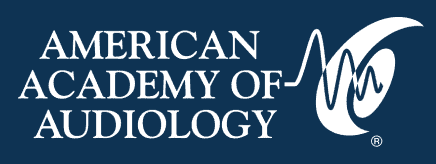Audiology licensure requirements vary by state, so for any audiologist, whether a new AuD grad or an established professional, obtaining licensure can be a challenging and confusing task.
Currently, 17 states and the District of Columbia accept either the American Board of Audiology Certified (ABAC) or Certification of Clinical Competency in Audiology (CCC-A) certifications as audiology credential verification in lieu of one or more requirements (e.g., reporting a Praxis score, documentation of clinical experience) for audiology licensure. An additional 17 states accept only the CCC-A in lieu of their requirements, excluding the ABAC certification as an accepted licensure credential.
| States that require documentation of ABAC or CCC-A for licensure: |
| Alaska, Delaware, Hawaii, Massachusetts, Mississippi (for Master’s degree only), Nevada, New Mexico, South Carolina, Virginia, Wyoming |
| States that recognize ABAC and CCC-A as meeting equivalence for one or more of their requirements: |
| Alabama, Arkansas, California, Connecticut, District of Columbia, Florida, Georgia, Idaho, Kansas, Maryland, Michigan, Minnesota, Oklahoma, Oregon, Pennsylvania, Rhode Island (for Master’s degree only), Texas, Washington |
| States that recognize only CCC-A as meeting equivalence for at least one of their requirements: |
| Arizona, Colorado, Illinois, Indiana, Iowa, Kentucky, Louisiana, Maine, Nebraska*, New Jersey, New York, North Carolina, Ohio, Tennessee, Utah, West Virginia, Wisconsin |
| States that don’t recognize either certification as meeting any of their requirements: |
| Missouri, Montana, New Hampshire, North Dakota, South Dakota, Vermont |
Academy staff provided organizational updates at the recent annual meeting of the National Council of State Boards of Examiners for Audiology and Speech-Language Pathology (NCSB). Attendees of this meeting included administrators and licensing board members from approximately 25 states. In the brief Academy update on certification and accreditation, staff shared the current status on state recognition of ABAC and CCC-A—including the 17 states that accept only the CCC-A in lieu of state requirements. It is worth noting that representatives of several of the 17 states in question were in attendance and expressed surprise that their state did not recognize both certifications equally.
The ABA Certified credential requires a commitment to professional standards, ethical practices, and continued professional development. The continuing education requirement for ABA Certified is rigorous and exceeds the CE requirements for ASHA certification and all but one state’s licensure requirements.
The American Board of Audiology is working to make the ABA Certified credential a nationally recognized and accepted credential in every state. A work group addressing state licensure requirements has been created and the ABA is looking for volunteers to assist in these efforts. If you are interested in participating, please contact aba@audiology.org.
Related Posts
Need Tier 1 CEUs?
Beginning in the February 2025 Quarterly News, ABA will begin reporting newly approved Tier 1 courses and where you can take them. In the meantime,…
Resources for New Professionals from ABA
As an ABA board member and an audiology preceptor for almost 10 years, the fall season is always an exciting time for me. Not only…
Pediatric Audiology Specialty Certification (PASC) Update
Now is the time to begin planning to take the Pediatric Audiology Specialty Certification (PASC) exam in spring 2025. Consider becoming Board Certified in Pediatric…



